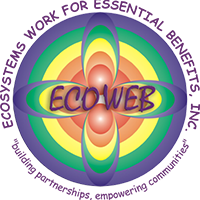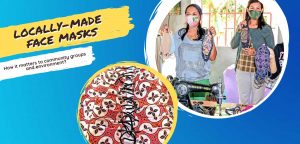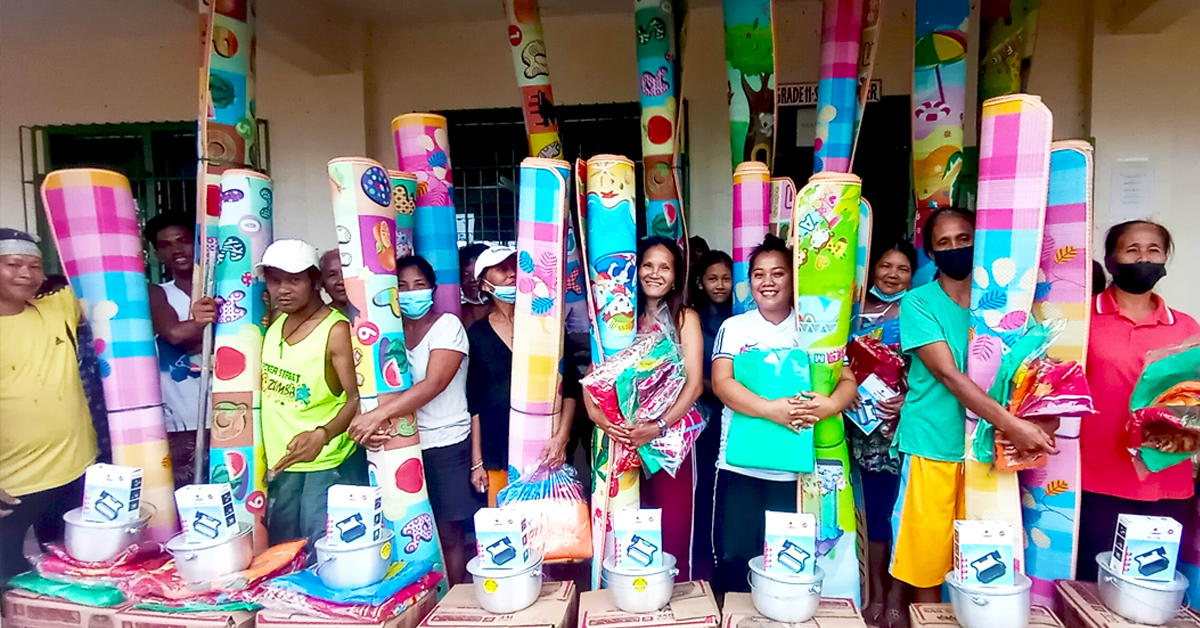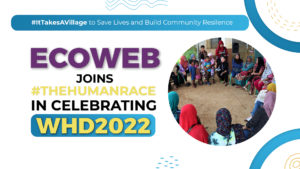A total of Php 3,040,000.00 was received by the 760 earthquake survivors in Cotabato last February 26 and 27, 2020 in Kidapawan and Makilala, North Cotabato as part of the recovery interventions to support vulnerable communities in their economic and living conditions from ECOWEB’s project entitled, “Survivor and Community-Led Response to Most Vulnerable Families and Communities affected by the Earthquake Swarm in Cotabato” in partnership with The Johanniter International Assistance and Aktion Deutschland Hilft.
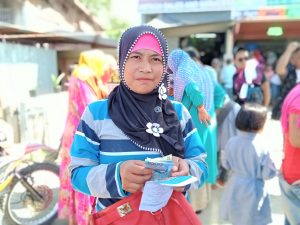
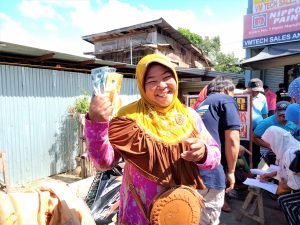
The cash assistance covered two most affected areas namely Kidapawan City and Makilala, North Cotabato. Kidapawan City, with a total of 419 beneficiaries from barangay Ilomavis and Perez where most of the survivors stayed in the evacuation centers. Alongside, Barangay Buhay, San Isidro and Buena Vida are parts of the most affected areas of Municipality of Makilala with 341 home-based beneficiaries. As stated by the local people and during the profiling process, the three barangays experienced strong earthquake three times. The rapid assessment result shows that these barangays are just some of the affected barangays which host a large number of home-based survivors.
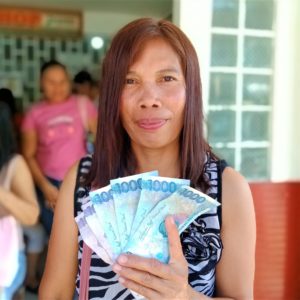
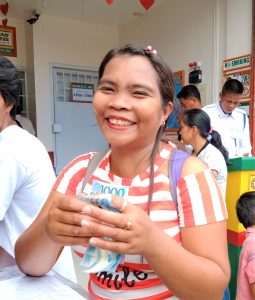
Driven by social mission, ECOWEB initiated this response that aims to assist the basic needs of the survivors amidst the period of their recovery process. As part of ECOWEB’s survivor and community-led (sclr) approach, a Participatory Action Learning in Crisis and Profiling was conducted in November 2019 to assess the needs and current condition of the survivors, and to profile them for immediate intervention. On the same month, an Analysis on Vulnerability and Capacity Assessment was also conducted for the community to determine specific areas of vulnerability and decide on specific actions that could stimulate community initiatives and individual actions to address it. This evidence-based activity provides information of both strengths and weaknesses of each household to measure on how capable they are to build back or how vulnerable they are to risks or any degree of difficulties.

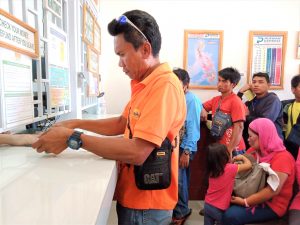
As a result, Self-Help Groups (SHGs) were formed and received different amounts depend on the numbers of members within the group, and vulnerability and capacity were also considered in the distribution of the amount and allocation of funding for their projects.
In Kidapawan City, barangay Ilomavis has four areas which composed of different SHGs. Groups in each are includes the following:
Purok 1A’s Anitap Group with 34 members received Php 136,000.00; Homebased Group with 24 members received Php 96,000.00; and Foreverlove Group with 34 members received 136,000.00.
Purok 1B consists of Everlasting Group with 22 members received Php 88,000.00; Panaghiusa Group with 29 members received Php 116,000.00; and Real Survivor Group with 30 members received Php 120,000.00.
Purok 2A consists of Water Group with 21 members received Php 84,000.00; Quake Group with 23 members received Php 92,000.00; Quary Group with 28 members received Php 112,000.00; Fighter Group with 11 members received 44,000.00; Believers Group with 10 members received Php 40,000.00; Bangon Ilomavis Group with 10 members received Php 40,000.00; and Bangon Madiandang with 14 members received Php 56,000.00.
Purok 2B consists of Roque Group with 11 members received Php 44,000.00; Ilomavis Survivor Group with 11 members received 44,000.00; C.O.C Group with 10 members received Php 40,000.00; and Eslao The Survivor Group with 27 members received Php 108,000.00.
Barangay Perez has two SHGs namely Women Rug Weavers Association composed of 26 members received Php 104,000.00 and Jordan Group with 17 members, received Php 68,000.00.
Makilala, on the other hand, covered three barangays. This includes Barangay Buena Vida which has Lapu-Lapu 1 Group with 35 members received Php 140,000.00; Lapu-Lapu 2 Group with 23 members received Php 92,000.00; and Rizal Group with 23 members received Php 168,000.00.
Barangay Malasila is composed of Team Strong with a member of 25 received Php 100,000.00; Team Positive with a member of 22 received Php 88,000.00; Team Balite with a member of 29 received Php116,000.00; Survivor Group with a member of 24 received Php 96,000.00; and SIMC Group with a member of 28 received Php 112,000.00.
Barangay Buhay is composed of Maliwanag Group with a member of 22 received Php 88,000.00; Marang Group with a member of 40 received 160,000.00; and Centro Group with a member of 51 received Php 204,000.00.
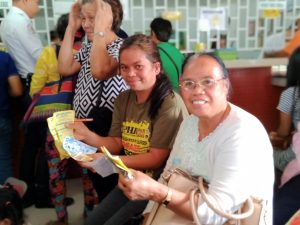
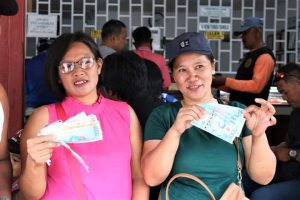
ECOWEB distributed the cash grants via Palawan Express Pera Padala to each member of all formed self-help groups. Apart from having individual cash assistance, the community decided through participatory action planning and local context assessments that they will allocate budget on community projects and initiatives and reach a common goal on supporting its operations. Most of the self-help groups formed in each barangay decided to shape up their recovery initiatives and proposed community projects to improve their current conditions.


Community projects include the rehabilitation and/or installation of barangay’s water system due to insufficient supply and limited water distribution to household, purchase of construction materials for the repair of their houses and food items such as buying sacks of rice and other daily consumption needs to be distributed to group members. Through the survivor and community-led response (sclr) approaches on deciding initiatives to fast-track the recovery of the community affected by earthquake, it enables them to support their individual needs as well as establishing sustainable community projects that could benefit the entirety of each barangay’s population.
 Arthur Yarti, 42 years old, one of the SHG leaders of Barangay Malasila, Makilala, Cotabato. According to him, sclr assesses the community in terms of needs and resources and allows the beneficiaries to choose, plan and decide on what they really need in the time of crisis. It also allows them to further plan what or where to utilize the assistance before it is delivered. Through this process, community and survivors are empowered. As he mentioned, the survivors became more responsible in attending meetings and activities. It also molds their leadership skill, develops sense of responsibility and discipline, and turns their negative perceptions in life into positive ones.
Arthur Yarti, 42 years old, one of the SHG leaders of Barangay Malasila, Makilala, Cotabato. According to him, sclr assesses the community in terms of needs and resources and allows the beneficiaries to choose, plan and decide on what they really need in the time of crisis. It also allows them to further plan what or where to utilize the assistance before it is delivered. Through this process, community and survivors are empowered. As he mentioned, the survivors became more responsible in attending meetings and activities. It also molds their leadership skill, develops sense of responsibility and discipline, and turns their negative perceptions in life into positive ones.
“ECOWEB’s approach is very unique from other organizations that came to us. SCLR allows us to be empowered and to participate in the whole process from planning and deciding on what we do on our money to make our lives better from the earthquake.” Yarti said.
These initiatives aim to financially and psychologically assist the survivors as they are facing and rising from the devastation. The beneficiaries are also looking forward for a livelihood assistance and capacity training, psycho-social interventions and activities for the most vulnerable sectors of the community such as the children, youth, and women.
The organizations involved in these processes aspired to the holistic and inclusive development of the most vulnerable communities.
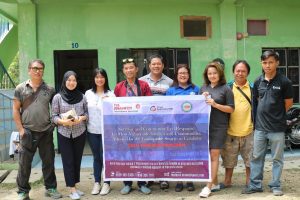

The project started last November 2019 and continuously moving its recovery initiatives and assistance for the people affected by the earthquake. The next batch for the cash transfer program is yet to be conducted due to the recent COVID-19 outbreak in the country.

